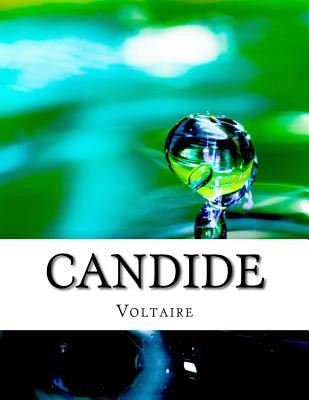
- We will send in 10–14 business days.
- Publisher: CreateSpace Independent Publishing Platform
- ISBN-10: 1977564534
- ISBN-13: 9781977564535
- Format: 21.6 x 28 x 0.6 cm, softcover
- Language: English
- SAVE -10% with code: EXTRA
Candide (e-book) (used book) | bookbook.eu
Reviews
Description
Candide, ou l'Optimisme (1759) is a French satire by the Enlightenment philosopher Voltaire, English translations of which have been titled Candide: Or, All for the Best (1759); Candide: Or, The Optimist (1762); and Candide: Or, Optimism (1947). The novella begins with a young man, Candide, who is living a sheltered life in an Edenic paradise and being indoctrinated with Leibnizian optimism (or simply optimism) by his tutor, Pangloss. The work describes the abrupt cessation of this existence, followed by Candide's slow, painful disillusionment as he witnesses and experiences great hardships in the world. Voltaire concludes with Candide, if not outright rejecting optimism, advocating an enigmatic precept, "we must cultivate our garden", in lieu of the Leibnizian mantra of Pangloss, "all is for the best in the best of all possible worlds".
EXTRA 10 % discount with code: EXTRA
The promotion ends in 18d.14:44:30
The discount code is valid when purchasing from 10 €. Discounts do not stack.
- Publisher: CreateSpace Independent Publishing Platform
- ISBN-10: 1977564534
- ISBN-13: 9781977564535
- Format: 21.6 x 28 x 0.6 cm, softcover
- Language: English English
Candide, ou l'Optimisme (1759) is a French satire by the Enlightenment philosopher Voltaire, English translations of which have been titled Candide: Or, All for the Best (1759); Candide: Or, The Optimist (1762); and Candide: Or, Optimism (1947). The novella begins with a young man, Candide, who is living a sheltered life in an Edenic paradise and being indoctrinated with Leibnizian optimism (or simply optimism) by his tutor, Pangloss. The work describes the abrupt cessation of this existence, followed by Candide's slow, painful disillusionment as he witnesses and experiences great hardships in the world. Voltaire concludes with Candide, if not outright rejecting optimism, advocating an enigmatic precept, "we must cultivate our garden", in lieu of the Leibnizian mantra of Pangloss, "all is for the best in the best of all possible worlds".


Reviews